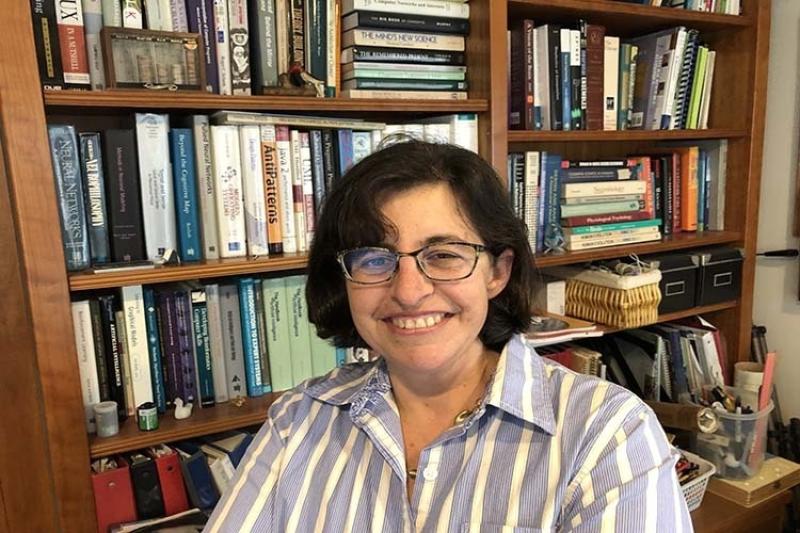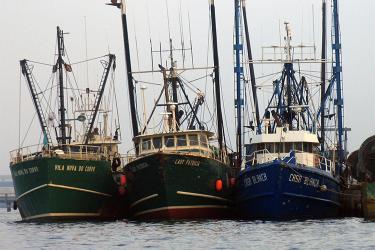What do you do as the Public Affairs Officer for NOAA Fisheries Greater Atlantic Region?
My primary job is to get the message out about what we are doing and why we are doing it. We do a number of different things here, from regulating fisheries to protecting vulnerable fish, sea turtles, and marine mammals, to restoring important habitat. I tell the stories of what we do here at NOAA Fisheries, and why it matters. I use a variety of tools, including emails, our website, traditional press, and social media.
What do you like best about your job?
My days are incredibly varied and often take unexpected turns. I might be helping to pull together a response to congressional staff on summer flounder. Or, I could be answering questions about Atlantic sturgeon critical habitat for a reporter. I might be editing a web story on dam removals, sending out emails about new fisheries regulations, or tweeting about right whale sightings. Sometimes I get calls from fishermen wanting to know what the latest regulations are or telling me why they don’t like them. No two days are the same. Keeps life interesting!
What’s the hardest part of your job?
I am the quintessential jack-of-all-trades and master of none. I rely on our wonderful staff here at GARFO to answer or help me answer the questions I get. Probably the hardest part of my job is actually tracking down the busy staff person I need to answer the question. It’s even harder if it comes in later in the day. You’ll see me roaming the halls to see who’s still here who might be able to fill me in.
How long have you been in this position, and what did you do before?
I’ve been in this position for almost five years as a federal employee. I started doing it part-time as a contractor. Immediately before this job, I was a contractor in the Protected Resources Division for about five years. I mostly did Endangered Species Act Section 7 informal consultations. That job helped orient me on the region’s resources, programs, and staff.
What educational background helped you get to your career today?
I have a B.S. in Biology from Cornell, a J.D. from UNC-Chapel Hill, and an M.M.A. in Marine Affairs from URI. You will note that none of those degrees are in journalism or writing— communications wasn’t so much a “career path” as “career meander.” The universe just kept pointing me in that direction. In an alternate universe, I’m on a beach someplace tagging sea turtles—which I did briefly when I worked at Earthwatch.
What's something most people don’t know about you?
After law school, I spent six months in Nairobi, Kenya working for the United Nations Environment Programme and traveled the country. I’m not sure I was very useful to UNEP, but I did learn several things: Baboons are wicked fast and will steal ALL your bread. Giraffes have very long, sticky tongues. Gazelles are (unfortunately) delicious. Also, the guards at the Tanzania-Kenya border are real sticklers for bureaucracy.
Do you have any advice for young people starting their careers?
If there’s something you want to do or something you care about, keep working at it. You will spend a big chunk of your waking hours at work.If you are lucky enough to be in a position where you get to choose your career, make sure it’s something you think is important. Also, spellcheck, proofread, and learn to use short words—plain language is a skill that everyone needs, including scientists and managers.




